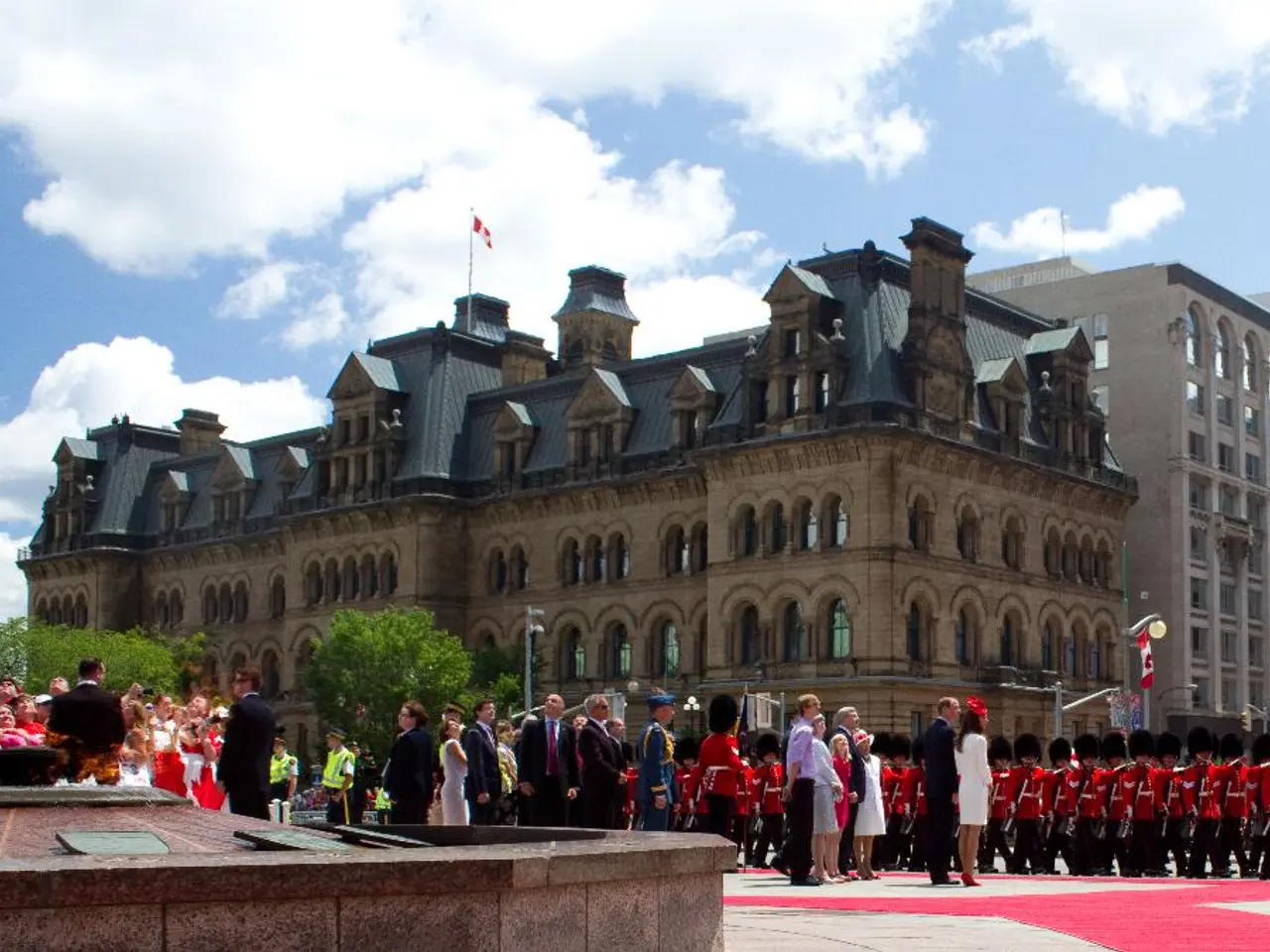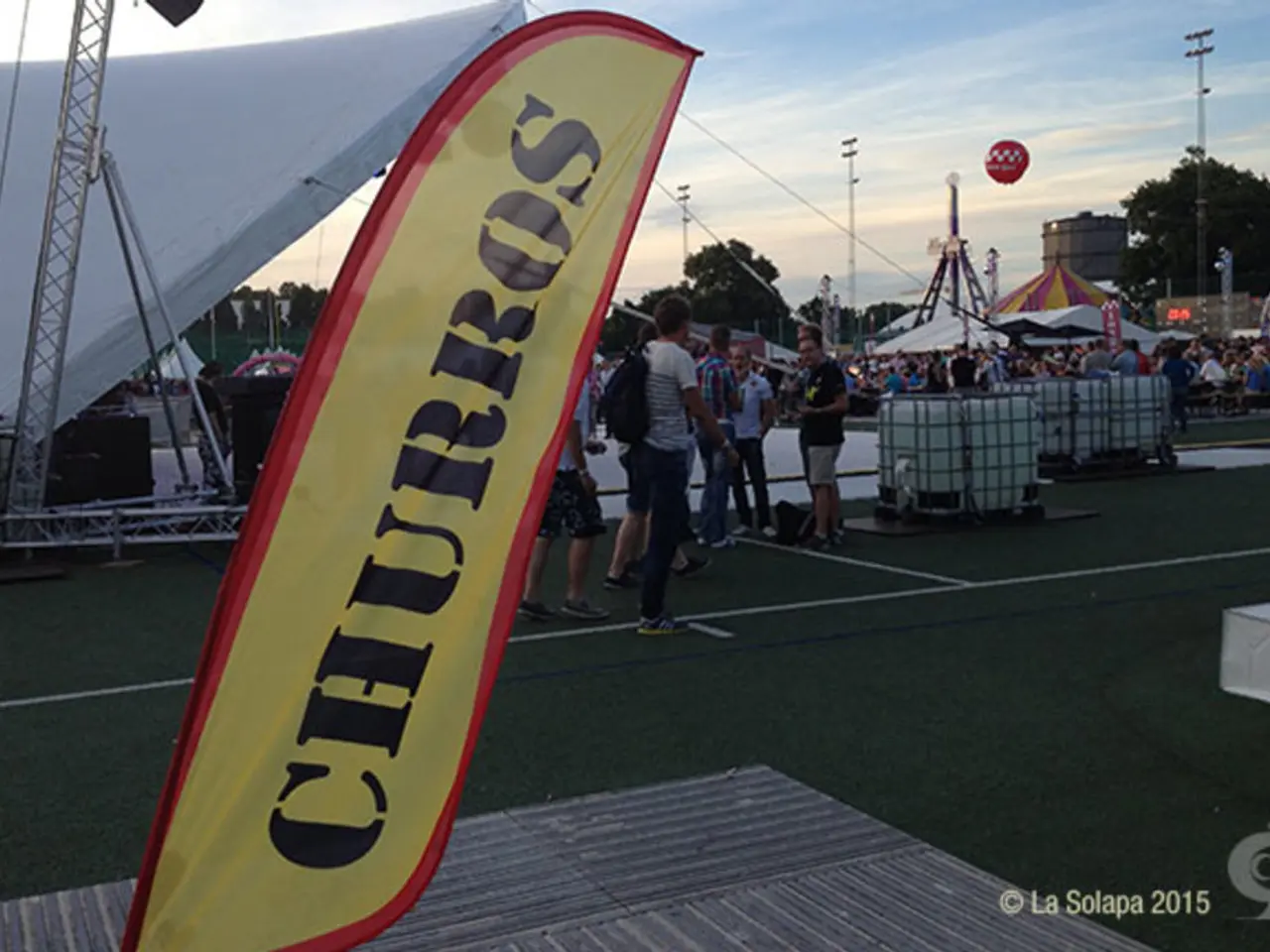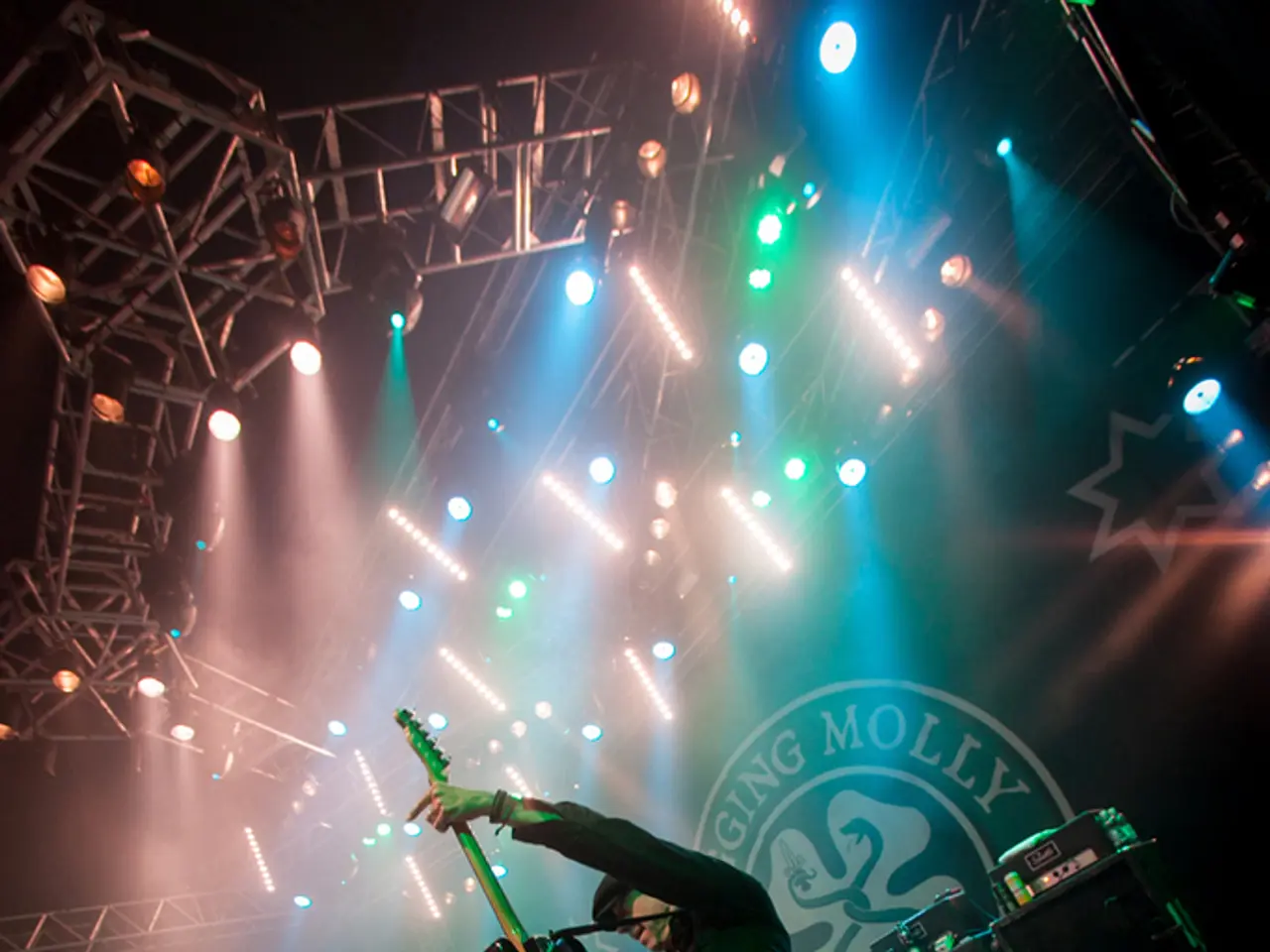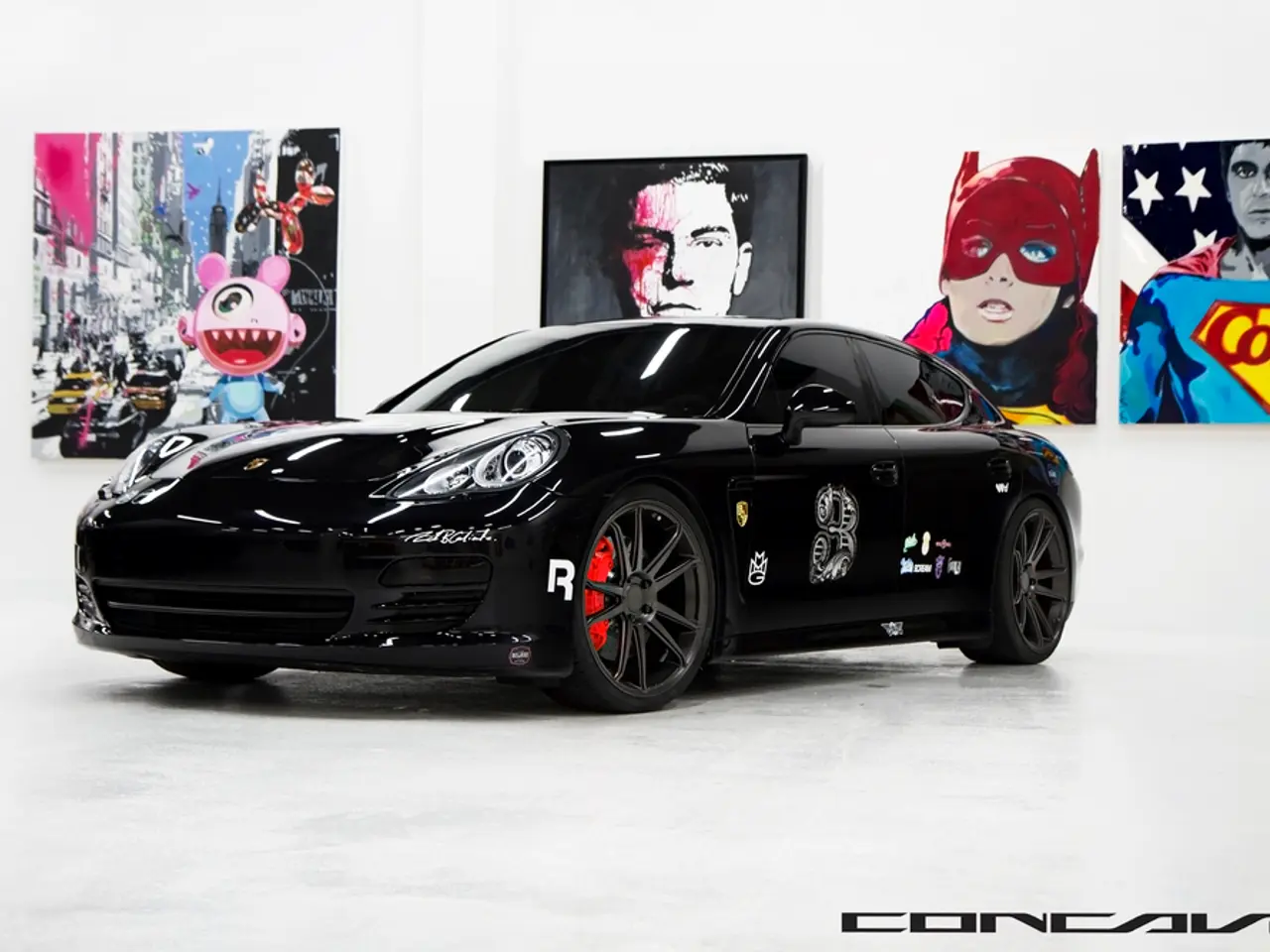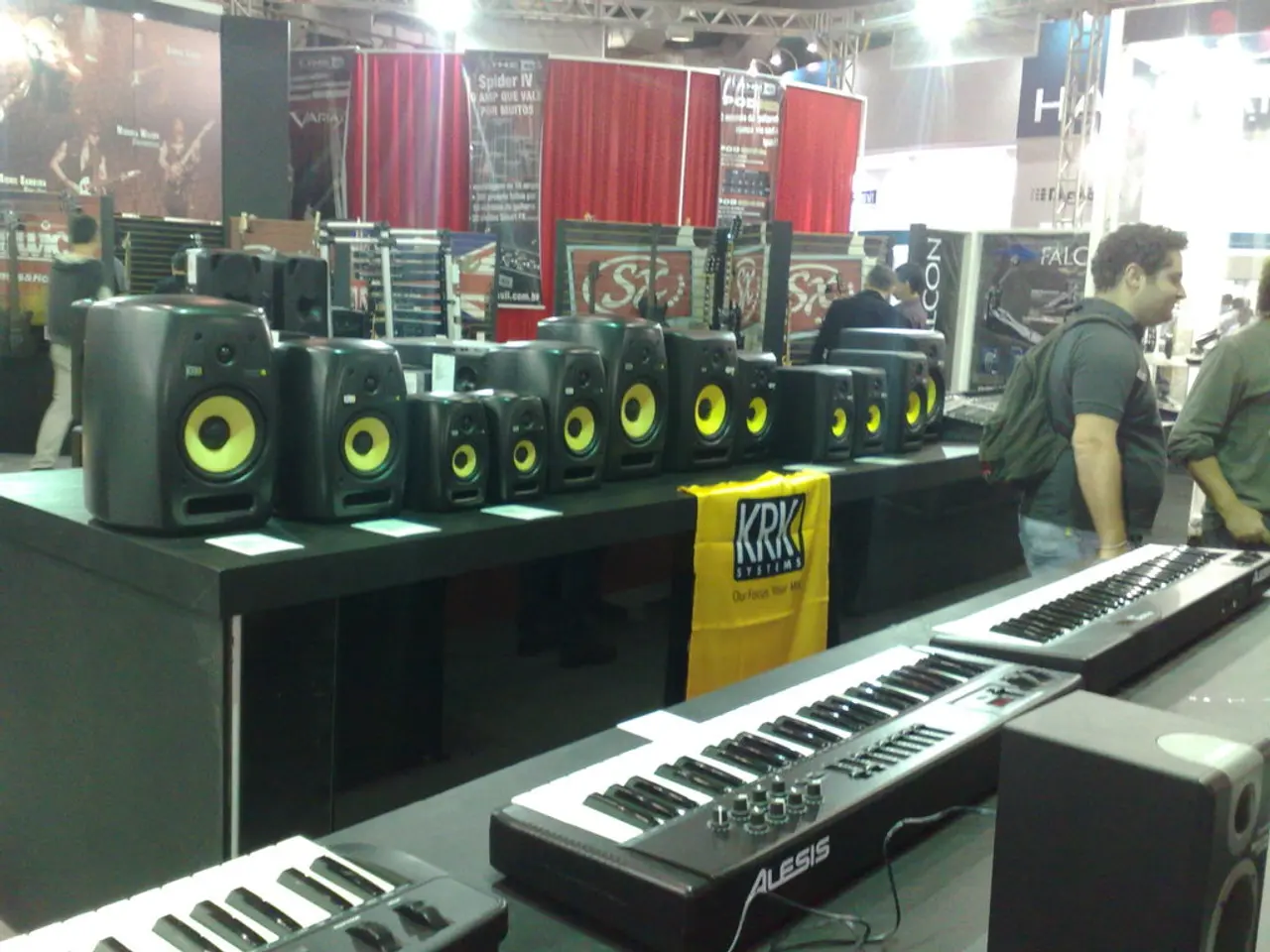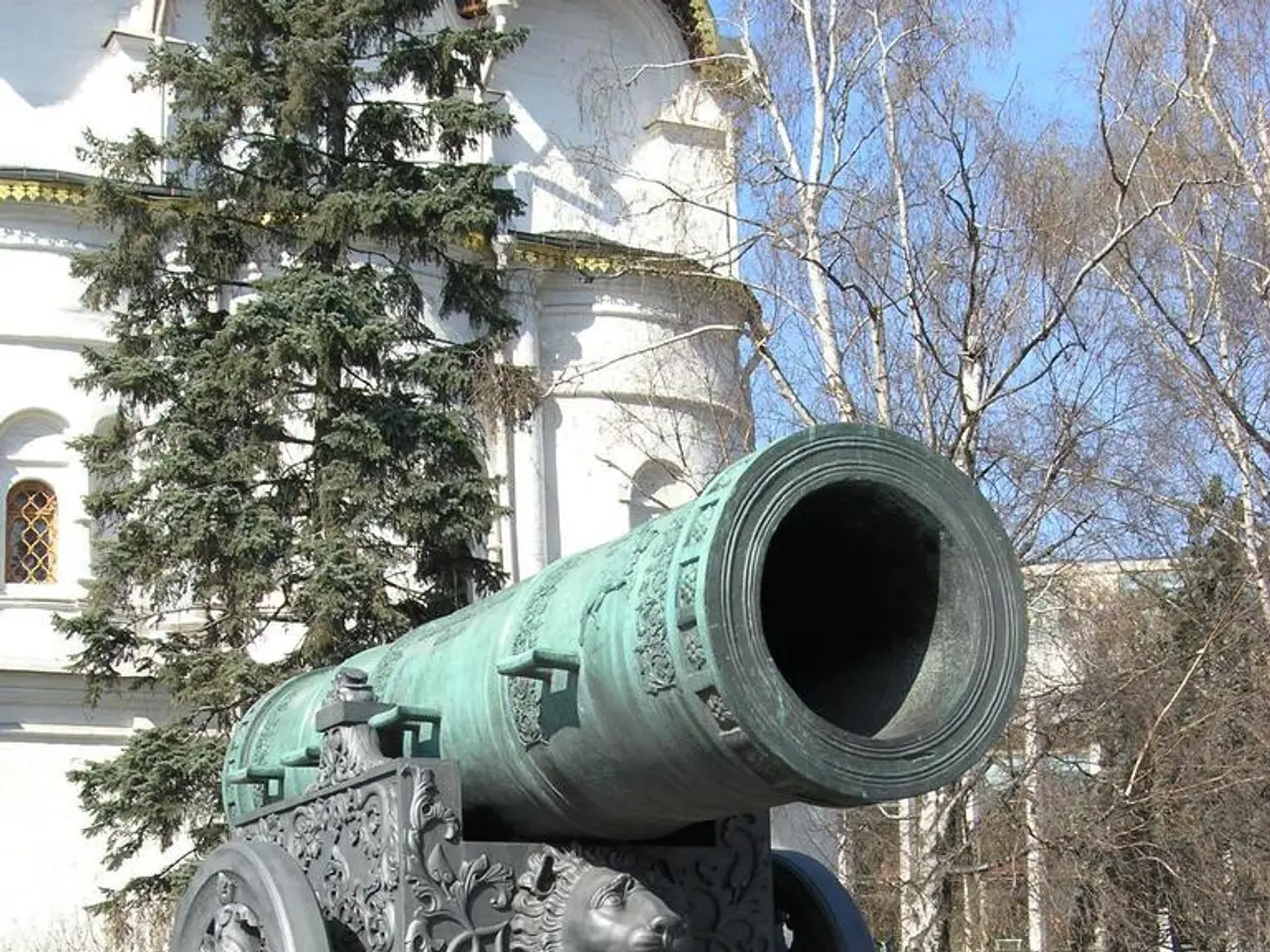Metro station in Berlin undergoes vibrant rainbow transformation following controversy over display of Pride flag at Reichstag building
In a controversial move, the rainbow flag has been removed from the Reichstag and offices of German parliament members following an order from Bundestag President Julia Klöckner. This directive mandates immediate removal of rainbow flags inside and around parliamentary offices, citing parliamentary house rules that fundamentally prohibit any flags or posters visible from outside the Bundestag building[1].
The decision has sparked backlash, with opposition parties, LGBTQ+ advocates, and city actors expressing their disapproval. Berlin’s public transport company, BVG, has taken a symbolic stand by repainting a metro station near the Reichstag in rainbow colours[2].
The ban on rainbow flags at the Reichstag and parliamentary spaces coincides with the period leading up to Berlin’s annual Pride parade, known as Christopher Street Day (CSD). This year's CSD theme is "Never again quiet!", emphasising the importance of visibility and advocacy for the LGBTQ+ community[3].
Chancellor Friedrich Merz, also from the CDU, supports this stance, controversially describing the Reichstag as “not a circus tent” and affirming that the rainbow flag should not be flown on the Reichstag building itself, although individuals are free to display such flags at home[3].
However, this conservative position has not gone unchallenged. Former Berlin Mayor Klaus Wowereit criticized Merz’s comments as “stupid” and called for greater leadership responsibility[2]. The conservative leaders of the Christian Union parties (CDU/CSU) have decided not to support this year’s Pride[4].
Despite the controversy, the CSD demo is set to take place in Germany’s political centre. The demonstration will make its way past the Bundesrat, to Nollendorfplatz, and then around to the Brandenburg Gate[5]. According to the CSD organisers, protest is indispensable this year due to increasing attacks on the queer community and the questioning of recent achievements[6].
The annual Pride parade in Berlin will take place on Saturday, with hundreds of thousands of people expected to attend[7]. The Berlin municipal transport company, BVG, has decorated the Bundestag U-Bahn station with rainbow colours, making it a focal point for Pride festivities in the city[2].
In a show of solidarity, BVG posted on Instagram, "We are happy to help you fly the flag." The post includes the caption, "So our Bundestag is not ready for CSD."[2]
This conflict illustrates tension in Germany’s political landscape between conservative ideas of institutional neutrality and broader social movements advocating for LGBTQ+ visibility and rights.
| Aspect | Details | |----------------------------------|------------------------------------------------------------------------------------------------| | Reason for removal | Bundestag house rules forbid flags visible from outside; applied to rainbow flags too[1] | | Leadership enforcing ban | Bundestag President Julia Klöckner (CDU), supported by Chancellor Friedrich Merz (CDU)[1][3] | | Conservative view on CSD | Conservative leaders do not endorse rainbow flags in parliament; emphasize formal decorum[3] | | Public and LGBTQ+ community response | Berlin transport’s rainbow station repaint & widespread criticism of the ban as regressive[2] | | CSD Details | CSD theme: "Never again quiet!"; demo route: starts at Leipziger Straße / Charlottenstraße, passes Bundesrat, Nollendorfplatz, and Brandenburg Gate[5][6] | | BVG's Actions | BVG painted a Pride flag on the entrance of the Bundestag U-Bahn station[2] | | Opposition to Ban | Opposition parties, LGBTQ+ advocates, and city actors have responded with visible protests[2] |
[1] https://www.welt.de/politik/deutschland/article219369108/Kloekner-verbietet-Regenbogenflaggen-vor-Reichstag-und-Bundestag.html [2] https://www.thelocal.de/20220616/berlin-transport-company-paints-rainbow-flag-on-bundestag-station-in-protest-against-flag-ban [3] https://www.dw.com/en/germanys-chancellor-merz-says-reichstag-is-not-a-circus-tent/a-62076297 [4] https://www.spiegel.de/politik/deutschland/cdus-streit-um-regenbogenflagge-auf-reichtag-a-6839929.html [5] https://www.csd-berlin.de/en/programme/csd-parade/ [6] https://www.csd-berlin.de/en/about-us/mission-statement/ [7] https://www.dw.com/en/hundreds-of-thousands-expected-at-berlin-pride-parade/a-62076315
- The controversy surrounding the removal of rainbow flags from the Reichstag has extended beyond German politics, sparking a discussion on social media about the importance of fashion-and-beauty and social-media as platforms for self-expression and activism.
- Amidst this debate, books detailing the history of war-and-conflicts and policy-and-legislation have seen a surge in popularity, as readers seek to understand the broader context and implications of these political decisions.
- Movies-and-tv productions featuring LGBTQ+ characters and narratives have also gained traction, with titles such as pop-culture favorites like Pose and Schitt’s Creek garnering renewed attention.
- Science-fiction-and-fantasy series, known for their ability to openly explore complex themes and societal issues, have become go-to outlets for those seeking escapism and inspiration during this time.
- Meanwhile, general-news outlets have been providing extensive coverage on the rainbow flag ban, with experts offering insights on crime-and-justice, accidents, and sports as related topics.
- Commentators have drawn parallels between the removal of rainbow flags and established institutional policies, shedding light on the ongoing struggle for equality and justice in politics and sports-betting industries.
- The European leagues, basketball, ncaa-basketball, mlb, nhl, racing, premier-league, and tennis championships have expressed solidarity with the LGBTQ+ community, with teams and players incorporating Pride-themed clothing and emblems into their performances and merchandise.
- The Women's National Basketball Association (WNBA) has reaffirmed its commitment to advancing LGBTQ+ rights, emphasizing its role within the broader context of policy-and-legislation and social issues.
- In a significant display of diversity and inclusivity, soccer powerhouses like football clubs such as Manchester City, Bayern Munich, and FC Barcelona have embraced their loyal LGBTQ+ fanbase, demonstrating their support through jerseys and initiatives.
- The Masters tournament, one of golf's major championships, has consistently celebrated inclusivity, as evidenced by their rainbow flag-decorated clubhouse during this year's competition.
- The role of weather-forecasting and sports-analysis in providing accurate and informed decision-making has become increasingly critical in guiding people's lifestyles, including their participation in auto-racing, horse-racing, and mixed-martial-arts events.
- The auto industry has also waded into the debate, with leading car companies pledging their allegiance to the LGBTQ+ community, recognizing the impact of fashion-and-beauty and social-media trends on consumer preferences.
- As the annual Pride parades, including the Christopher Street Day in Berlin, approach, sports platforms such as ESPN, Sky Sports, and BeIN Sports have announced their coverage plans, aiming to spotlight the importance of sports within the LGBTQ+ community.
- The National Collegiate Athletic Association (NCAA) has initiated conversations on expanding Title IX protections to include sexual orientation and gender identity, establishing a much-needed dialogue on crime-and-justice issues impacting student-athletes.
- Amidst the backdrop of political tensions and cultural shifts, base-ball, hockey, and football clubs have maintained a strong focus on fostering positive lifestyles through community outreach programs and partnerships with book publishers, promoting literacy and education among youth.
- As the world watches Germany navigate this contentious issue, cities like Berlin have become a beacon of hope and solidarity for the LGBTQ+ community, fostering an environment that celebrates diversity and fosters healthy living.
- Entertainment events, such as the Champions League and the Grand Prix, have become platforms for promoting inclusivity, showcasing the vibrant tapestry of international pop-culture, sci-fi-and-fantasy, and general-news phenomena.
- Weather-forecasting services have played a crucial role in ensuring the safety of sports players and fans, as well as providing accurate climate data for those planning outdoor activities like horse-racing, auto-racing, and mixed-martial-arts events.
- As the emblem of the rainbow flag continues to spark heated discussions, the WNBA, premier-league, nba, and other sports organizations have recognized the need for inclusive policies and initiatives to combat discrimination and promote harmony within their respective communities.
- With the Christopher Street Day parade on the horizon, the European leagues, tennis tournaments, and other sports events have vowed to continue their support for the LGBTQ+ community, underscoring their commitment to fostering an environment where everyone can live, work, and play without fear of prejudice or discrimination.
